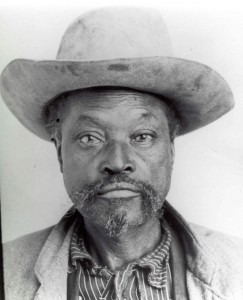Background
Elijah Tinnon was born a slave on an Arkansas farm before the Civil War. One of his white owners, a Bill Tinnon, reported that Elijah left the area shortly around the time Gen. Blunt’s Kansas troops were fighting in the vicinity, near Cane Hill, in 1862. In 1865 Tinnon appeared in the Miami County KS census, and by 1870 he was in Ottawa, working as a laborer or well digger. He and his wife had four sons.
In September of 1876 the Ottawa Board of Education received a petition from seven black parents requesting that the teacher of the segregated black classroom be removed. Their underlying desire was for their children to be placed into the various white classrooms. The petition and presentation to the school board by Mr. Tinnon and William McElroy were successful.
The Law Suit
Less than four years later, the school board’s committee on Buildings and Grounds recommended that the “colored children in rooms No. 1, 2, 3, 4, 5, & 6 be placed in the frame school house and a teacher of their own color be employed to instruct them.” Emory University Law Professor Andrew Kull, in his book, The Color-Blind Constitution, suggests that the change in attitude between 1876 and 1880 was the “Exodus of 1879” when an enormous rural migration of southern blacks fled their home states at the sudden end of Reconstruction. “Banished from the plantations of the lower Mississippi, or else refusing to remain there in conditions of peonage, thousands of southern blacks crowded the riverboats in search of free homesteads thought to be awaiting them in Kansas.”
“Ottawa was a small but rapidly growing city, less than sixty miles by rail from the Kansas City gateway. The number of Exodusters who sojourned in Ottawa, however briefly, must have been relatively large. Even if relatively few of the migrants sent their children to the Ottawa schools, the addition of these highly visible newcomers, especially poor and especially backward, will have strengthened the hand of those whites who preferred that black schoolchildren be formally segregated.” In response to an order that Leslie Tinnon attend the black school, his father Elijah brought a lawsuit against the school board.
The ensuing court case in the Franklin County District Court was decided against the school board. Judge Stephens stated, “Under the construction the Supreme Court of the United States has put upon the 14th Amendment of the constitution it is evident to every mind that the Legislature of the State of Kansas had no power to confer authority upon the School Board of the city of Ottawa to make the order complained of. The rule itself is a violation of the rights conferred by the 14th amendment, and is inoperative and void.”
The Appeal to the Kansas Supreme Court
Among the justices hearing the appeal was Justice Daniel M. Valentine, formerly of Ottawa. Another was Justice David Brewer of Leavenworth who would be appointed to the U.S. Supreme Court in 1889, in time to support the ‘separate but equal’ doctrine in Plessy v. Ferguson.
An Excerpt from Justice Valentine’s Opinion
“The tendency of the present age is not to make any distinctions with regard to school children, except to classify them with reference to their studies and place them in the classes in which they properly belong. All kinds of children are usually allowed to go to the same schools, and all kinds of children are usually placed in the same classes. Boys and girls are allowed to go not only to the same schools, but are also placed in the same classes, and even colleges are now opening their doors for the education of both sexes; and is it not better that this should be so? Is it not better for the grand aggregate of human society, as well as for individuals, that all children should mingle together and learn to know each other? At the common schools, where both sexes and all kinds of children mingle together, we have the great world in miniature; there they may learn human nature in all its phases, with all its emotions, passions and feelings, its loves and hates, its hopes and fears, its impulses and sensibilities; there they may learn the secret springs of human actions, and the attractions and repulsions, which lead with irresistible force to particular lines of conduct. But on the other hand, persons by isolation may become strangers even in their own country; and by being strangers, will be of but little benefit either to themselves or to society. As a rule, people cannot afford to be ignorant of the society which surrounds them; and as all kinds of people must live together in the same society, it would seem to be better that all should be taught in the same schools.”
The ruling of the Franklin County court was upheld, but there was no rush to comply with the judicial order. No corrective action was taken by the Ottawa school board until 1884, when the black teacher was fired and the black children assigned to the regular classrooms.

